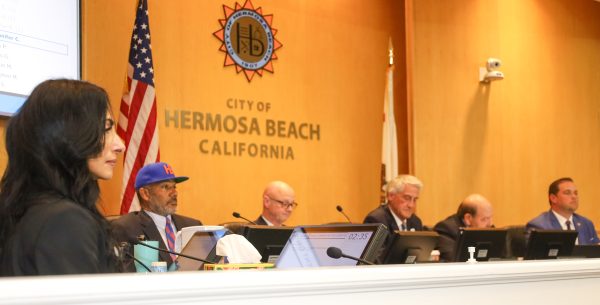
Car-sharing service Car2Go is rolling out of the South Bay, in a setback to activists who hoped the service could reduce congestion and pollution from multi-car families.
Car2Go will suspend its South Bay operations May 31, just a year after launching in the area. The company said it would instead concentrate on gaining approvals to operate in the City of Los Angeles and other areas in the county.
The service was available throughout 28 square miles of the South Bay – the smallest of the company’s 15 markets, which include San Diego; Washington, D.C.; Portland, Oregon and Austin, Texas. Car2Go is owned by German automaker Daimler.
Members could use a mobile app to see which of the company’s 115 blue-and-white Smart cars were nearby, then flash a membership card and begin driving. The cars could be picked up and left behind in Hermosa Beach, Redondo Beach, El Segundo, Hawthorne, Torrance and Lomita, although Manhattan Beach never participated. The company said it has about 4,000 members in the South Bay.
But the political will for Car2Go appeared to outpace real demand from residents.
“They would have stayed if it would have been more of a success,” said Jacki Bacharach, executive director at the South Bay Cities Council of Governments (SBCCOG), the agency that promoted bringing Car2Go to the South Bay. “I was obviously very disappointed.”
Part of the idea was to provide an alternative transportation option that could be paired with public transportation, biking, walking and ride-sharing to eventually reduce car ownership in the South Bay and lead to “greener” commuting habits and errand-running. Members paid a $35 upfront fee, and then either 41 cents a minute, $15 an hour or $85 a day to use the cars.
However, staunch environmentalists criticized the gas-powered cars from the beginning.
“Environmentalists like myself were not happy with the Car2Go program to begin with,” said Joe Galliani, director of the South Bay 350 Climate Action Group. “The vehicles are heavily polluting and don’t get terrific mileage. They had an option to do what they did in San Diego: give electric cars. That would have been a great way for people to see what electric cars are like. It would have reduced our greenhouse gas emissions.”
Parking was another challenge. Users needed to consider street parking restrictions within 24 hours of leaving a car. Meanwhile, ride-sharing services such as Uber and Lyft have caught-on by offering users a ride with no need to drive or worry about parking.
Many cars sat idle on neighborhood streets for extended periods of time, leading to questions from residents unfamiliar with the service.
“I was often explaining to people what the little cars were parked in front of their house or in their neighborhood,” said El Segundo Mayor Suzanne Fuentes, a supporter of the service.
SBCCOG’s Bacharach said it’s clear the company did not do enough to promote itself to prospective users who might have found it a convenient way to get around the South Bay. With the exception of a few launch parties and promotions last summer, she said there wasn’t much of a promotional push.
“I thought that when they came in they were going to market it, to expand it,” she said. “I was hoping they would use us as a showcase for L.A., but they didn’t do any more marketing.”
Perhaps Car2Go’s greatest challenge was endemic: that so many South Bay families are used to the convenience of owning multiple vehicles. Car2Go last year pulled out of the United Kingdom citing a “strong culture and tradition of private vehicle ownership,” a characterization that would seem to apply to many parts of the South Bay, where vehicles can be seen protruding from packed driveways onto sidewalks.
“Car2Go fits my needs,” said Hermosa Beach Councilman Michael DiVirgilio, who shares a car with his wife and used the service instead of a bus a couple times a month. “(But) if you already own two cars, or as many as you need, it’s hard to find value immediately to test this out. When push comes to shove and your schedule gets busy, you take the car. It’s convenient.”
Still, a Car2Go executive told the Beach Reporter in March that membership and rentals in the South Bay were growing every month.
Car2Go North America Chief Executive Paul DeLong said in an email that the service “was sufficiently marketed in the South Bay. With every Car2Go market, we ensure that community outreach is our number one priority.”
He said the decision to pack up from the South Bay came from the need to pursue deals with other localities so the company can create a network throughout greater Los Angeles, not just the South Bay.
“The decision to suspend operations in the South Bay was based on member demand to specifically include Los Angeles,” he said. “Expanding to Los Angeles has been on our radar even before we launched in the South Bay, and we’ve been working hard to work with the City of Los Angeles, as well as its surrounding communities, to develop a streamlined transit network from the South Bay to Los Angeles.”
As Car2Go works to gain approvals in other parts of Los Angeles County, it is leaving open the possibility that it returns to the South Bay if it can offer a broader service area.
“The decision would be contingent on a more robust operating area,” DeLong said.











